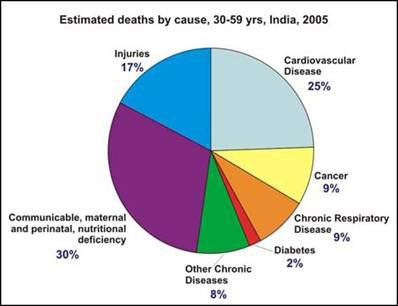Postal address: Enheten för Epidemiologi, Institutionen för Folkhälsa och klinisk medicin, Umeå University, SE-901 85 Umeå, Sweden
Visiting address: Umeå University Hospital, building 9
Web page: http://www.phmed.umu.se/english/units/epidemiology/
Contact person: Associate Professor Lars Lindholm, phone: +46 (0)90 785 29 34
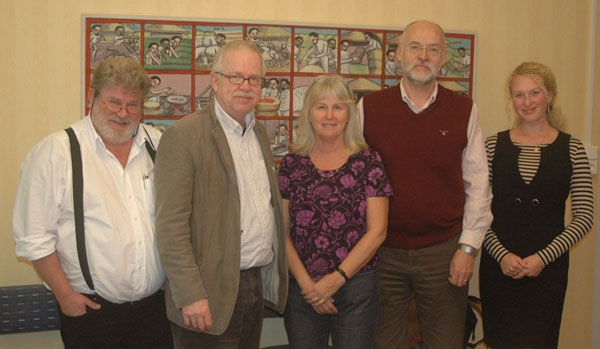
Epidemiology is a unit within the Department of Public Health and Clinical Medicine, with approximately 50 staff members and research students. The Epidemiology unit provides opportunities for graduate education and research in diverse fields of epidemiology and public health, accepting individuals from a variety of professional and academic backgrounds including those with experience from the health area. The Epidemiology unit is involved in research and research training in collaboration with a number of universities, departments or NGOs in Africa, Asia, Central America and the United States. This is an important part of the unit’s profile, which has been possible by grants from Sida/SAREC and STINT. In addition to research training courses and individual tutorials, internal seminars constitute an important part of the PhD-programme.
The Epidemiology unit is also responsible for Umeå International School of Public Health, where an international public health training programme including a Masters’ programme is offered. Since 1991 a large number of students from more than 30 countries have taken part in any of the courses offered by the unit, many from South Asia. Every year, the Master programme in Public Health normally includes students from Bangladesh, India, Nepal and Pakistan.
Besides till December 2008 more than 400 International students had participated in the yearly three-weeks Summer course on ”Epidemiology and Field Research Methods”. More information on the courses.
 The department is also hosting Umeå Centre for Global Health Research, that is strongly involved in research on Climate Change and Global Health. Go for its web site.
The department is also hosting Umeå Centre for Global Health Research, that is strongly involved in research on Climate Change and Global Health. Go for its web site.
The work is carried out by a core team with both internal collaboration within the centre and other researchers at Umeå University as well as with external regional, national and inte
It is headed by Peter Byass, Professor of Global Health, who has worked in global health for more than 20 years, for much of that time having been associated with Umeå on a part-time basis. He specialises in measuring and quantifying health issues in developing countries. He manages the Centre together with a Steering Group, together with the leaders of the five research themes.
 The Umeå Centre for Global Health Research, Umeå University, Sweden and International Center for Research & Development, Sri Lanka, jointly organise the Third International Conference on Global Public Health 2015 (GPH 2015) to be held 10 – 11 December 2015 in Colombo, Sri Lanka. Venue: Taj Samudra Hotel. Deadline for submitting abstracts is 15 May 2015.
The Umeå Centre for Global Health Research, Umeå University, Sweden and International Center for Research & Development, Sri Lanka, jointly organise the Third International Conference on Global Public Health 2015 (GPH 2015) to be held 10 – 11 December 2015 in Colombo, Sri Lanka. Venue: Taj Samudra Hotel. Deadline for submitting abstracts is 15 May 2015.
Keynote speakers are Newell W Johnson, Emeritus Professor of Dental Research, Griffith Health Institute, Australia; Seema Yasmin, Professor of Public Health, University of Texas at Dallas, USA; Dr. Raman Preet from the Umeå Centre for Global Health Research; and Dr. Prabhath Patabendi from the International Center for Research & Development (ICRD), Sri Lanka. The first GPH conference was held in 2012, and the second in 2014. More information about the conference.
 Since October 2003 the Division is a Collaborating Centre to the World Health Organization on “Epidemiological Surveillance and Public Health Training”. This is a major recognition of our international collaborative efforts and which potentially adds to the visibility and sustainability of the research and training activities carried out.
Since October 2003 the Division is a Collaborating Centre to the World Health Organization on “Epidemiological Surveillance and Public Health Training”. This is a major recognition of our international collaborative efforts and which potentially adds to the visibility and sustainability of the research and training activities carried out.
Umeå University’s Unit for Epidemiology and Public Health Sciences runs the Swedish Research School for Global Health – a partnership between Umeå University and Karolinska Institutet that has received financial support from the Swedish Research Council. The support provides infrastructure for implementing better and improved research training in global health, focusing on global diseases such as HIV/AIDS, tuberculosis and malaria. In addition, the two partner universities have joint undergraduate and master’s programs in global health. Recently both universities have created Centres for Global Health to provide a platform to focus on research on global health, concentrate resources and provide possibilities for making a contribution in reducing global poverty.
Professor Stig Wall was the founding father of the centre, and its first Director. He continues to work as Senior Advisor.
From 2009, a new 2-year Master of Public Health Degree has also been launched by the Umeå International School of Public Health. The Masters degree equips public health practitioners and researchers with the skills required to understand, and ultimately help improve and maintain, the health status of the population. More information.
In December 2008, SASNET’s deputy director Lars Eklund visited the department along with other departments at Umeå University. Read his report from the visit.rnational partners.
Research connected to South Asia:
The department was involved in the major long-term research and research training project on Early Child Health in Lahore carried out during the years 1976 to 1995 in collaboration with several other Swedish and International departments, with support from Sida/SAREC. More information about the Lahore project.
Associate professor Lars Lindholm is a health economist. He has done studies on equity in health economic evaluation and the use of epidemiological data in the distribution of health care resources. Lindholm is involved in the Network for Interventions against Maternal-Child Malnutrition in South Asia, initiated by Prof. Lars Åke Persson, International Maternal and Child Health, Department of Women’s and Children’s Health, Uppsala University. More information on the network.
Lars Lindholm has been involved in one research project on • ”Health economics for developing countries”,
and another one on • ”Combined interventions against maternal depletion and low birth weight in Bangladesh isues of cost-effectiveness compliance and equity”.
PhD candidate Rubina Shaheen from Bangladesh has been working on health economics analysis of nutrition interventions in pregnancy and effectiveness in improving size and health at birth of the offspring.
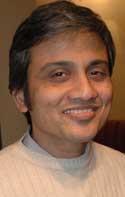 MSc Md. Showkat Gani worked for more than seven years as a Research Associate at BRAC Research and Evaluation Division (a division of BRAC conducting multidisciplinary research on various development issues and subjects of national and international importance since 1975) in Dhaka, Bangladesh. From 2006/07 Mr. Gani was one among many South Asian students at the Masters programme in Public Health in Umeå.
MSc Md. Showkat Gani worked for more than seven years as a Research Associate at BRAC Research and Evaluation Division (a division of BRAC conducting multidisciplinary research on various development issues and subjects of national and international importance since 1975) in Dhaka, Bangladesh. From 2006/07 Mr. Gani was one among many South Asian students at the Masters programme in Public Health in Umeå.
He participated in the SASNET workshop on ”The role of South Asia in the internationalisation of higher education in Sweden” held in Stockholm 29-29 November 2006. More information about the workshop.
 In the spring of 2012, the Swedish Council for Working Life and Social Research (FAS) announced a special call for proposals for arranging workshops/hearings to explore future research co-operation specifically with India, and Dr. Miguel San Sebastián was granted SEK 230 000 for a workshop on “Non Communicable Diseases community-based interventions in India: potential for multisectoral approach“. See all FAS India related workshop grants from 2012.
In the spring of 2012, the Swedish Council for Working Life and Social Research (FAS) announced a special call for proposals for arranging workshops/hearings to explore future research co-operation specifically with India, and Dr. Miguel San Sebastián was granted SEK 230 000 for a workshop on “Non Communicable Diseases community-based interventions in India: potential for multisectoral approach“. See all FAS India related workshop grants from 2012.
Workshop abstract: While still struggling with the unfinished agenda of maternal and child health, nutrition, and infectious diseases, the Indian government and population is now faced with the emerging burden of chronic non-communicable diseases (NCD) and mental health problems. The burden of cardiovascular diseases, chronic respiratory diseases, diabetes, cancers, and mental disorders are predicted to grow significantly in the next 25 years, and the NCD is projected to account for about 75% of all deaths in India by 2030. The overall objective of this workshop is to stimulate discussion about potential multisectoral approaches for NCD prevention and control in India.
The specific objectives of the workshop include: 1. To present and discuss current policies from health sector and other sectors on NCD prevention and control at national and state levels in India. 2. To discuss intervention for diet and nutrition related NCD risk factors (promoting salt consumption, reducing fat intake, and promoting fruit and vegetable intake) by different sectors. 3. To discuss the roles and synergy between health sector and other sectors, and formulate potential collaborative efforts in NCD prevention and control.
The workshop will be hosted by All India Institute of Medical Sciences (AIIMS) in New Delhi, India (coordinator Dr. Anand Krishnan), with the support from Epidemiology and Global Health (EpiGH) at Umeå University (Miguel San Sebastian and Nawi Ng); Mahatma Gandhi Institute of Medical Sciences (MGIMS) in Wardha, India (Dr B S Garg); and the Indian Council of Medical Research (ICMR). The planned date is Spring 2013.
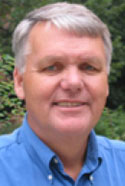 Professor Tord Kjellström is a Senior consultant on Public Health and Clinical Medicine at the Dept. of Epidemiology and Global Health, being a specialist in environmental and occupational epidemiology (personal web page).
Professor Tord Kjellström is a Senior consultant on Public Health and Clinical Medicine at the Dept. of Epidemiology and Global Health, being a specialist in environmental and occupational epidemiology (personal web page).
He is also Guest Professor at the Umeå Centre for Global Health Research, where he carries out research on the health impact of climate factors and climate change on working people and the consequences for the epidemiological transition and health equity. He leads the research group with a special focus on heat and work, bringing in expertise in environmental and occupational epidemiology now focusing on health impacts of climate change, health equity and urban health. Professor Kjellström is also affiliated to National Centre for Epidemiology and Population Health, Australian National University in Canberra.

In the fall 2012, Tord Kjellström launched a new Indo-Swedish cooperation project involving Umeå Centre for Global Health Research and the Dept. of Environmental Health Engineering at Sri Ramachandra University in Chennai, India. The project deals with Workplace Heat Effects on Working Peoples’ Health and Productivity. It is an issue of particular importance in tropical low and middle income countries, and the negative effects affect poor people and women more than the average person. The issue has been overlooked in almost all global reports on climate and climate change impacts on the future socio-economic conditions in low and middle income countries. The projects further analysis of the problem and testing of preventive methods is therefore highly relevant.
The results of the project will focus on health protection, productivity enhancement and poverty reduction in India, but the outputs and outcomes will also be of great value in the global health research and practice program of the Swedish partners.
Prof. Kjellström has published material on the issue also before. In 2011, an article entitled ”Workplace heat stress in the context of rising temperature in India” was published in Current Science. The article was co-written by S. K. Dash at the Centre for Atmospheric Sciences, Indian Institute of Technology Delhi (IITD). Go for the article.
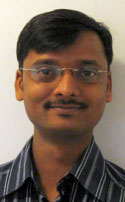 PhD Candidate Vijendra Ingole is attached to the theme Climate Change and Health, at UCGHR. He mainly focuses on “A study of weather effects, susceptibilities and potential impacts of climate change on mortality in Vadu HDSS, India”. His basic degree is in Environmental Science and working on GIS and Remote Sensing application in Public Health. He is associated with Vadu Rural Health Program, KEM Hospital Research Centre, Pune India, but spends six months a year at Umeå University.
PhD Candidate Vijendra Ingole is attached to the theme Climate Change and Health, at UCGHR. He mainly focuses on “A study of weather effects, susceptibilities and potential impacts of climate change on mortality in Vadu HDSS, India”. His basic degree is in Environmental Science and working on GIS and Remote Sensing application in Public Health. He is associated with Vadu Rural Health Program, KEM Hospital Research Centre, Pune India, but spends six months a year at Umeå University.
In 2012, he published, along with Sanjay Juvekar, Veena Muralidharan, Somnath Sambhudas, and Joacim Rocklöv, a paper entitled “The short-term association of temperature and rainfall with mortality in Vadu Health and Demographic Surveillance System: a population level time series analysis”.
2012 Partner Driven Cooperation (PDC) programme grants
In February 2012, the Swedish International Development Cooperation Agency Sida, announced grants for its Selective Cooperation Partner Driven Cooperation (PDC) programme, with the title ”Use of Research Results Collaboration Grants 2012-2013 in India and Indonesia”. Decisions were taken in late May. The objective of the grants was not to support research, but rather provide support for assisting partners in using research in policy formulation and innovation that can be of particular use for poverty alleviation. The use of research results is fundamental for economic development and successful application of research often results when several actors are involved. PDC aims to stimulate and strengthen the emergence of self-supporting relationships of mutual interest between Swedish partners and partners in selective cooperation countries in order to contribute to poverty reduction and equitable and sustainable global development. 13 projects were approved. Out of them six related to Indonesia collaboration projects, and eight to India. More information.
 One of the approved Indo-Swedish collaboration projects was applied for by Dr. Nawi Ng (photo) at the Department of Epidemiology and Global Health. Dr. Ng is a physician coming from Indonesia whose research interests centre on the epidemiology of chronic diseases and their risk factors in developing countries.
One of the approved Indo-Swedish collaboration projects was applied for by Dr. Nawi Ng (photo) at the Department of Epidemiology and Global Health. Dr. Ng is a physician coming from Indonesia whose research interests centre on the epidemiology of chronic diseases and their risk factors in developing countries.
The project is entitled ”Catalysing the health sector as leader in creating multi-sectoral collaboration to address non-communicable diseases in India”. The collaboration partner institutions in India are All India Institute of Medical Sciences (AIIMS) in New Delhi, and Mahatma Gandhi Institute of Medical Sciences (MGIMS) in Wardha, Maharashtra.
 |
|
|
Project abstract: This proposal presents the collaboration potential between two Indian institutes and Umeå University in developing a long-term collaboration in chronic non-communicable diseases (NCD) prevention and control. The major noncommunicable diseases are diabetes, cardiovascular diseases, cancer, chronic respiratory diseases, and mental disorders.
The focus lies on healthy diet (reduce salt consumption, promote fruit/vegetable intake and lower fat intake). The main objectives are to share experiences and to catalyse health sector in taking a leading role in creating multi-sectoral action for NCD prevention and control. We will review the literatures, share experiences from existing interventions, and build network of key stakeholders across different sectors and strengthen the multi-sectoral approach for NCD. The ultimate goal is to establish a sustainable collaboration between the institutions involved to benefit the Indian and Sweden population at large.
Sri Lanka workshop on Global Public Health
Umeå Centre for Global Health Research, Sweden, and the International Center for Research and Development (ICRD), Sri Lanka, jointly organise International Conferences on Global Public Health (GPH 2012) in Colombo. The first one was held 3–4 December 2012. Scientists and experts in the field were invited to participate. The keynote speakers were Professor Peter Byass, Director of the Umeå Centre for Global Health Research, and Dr. Ananda P. Dasanayake, Professor of Epidemiology and Health Promotion, New York University College of Dentistry and School of Nursing. More information.
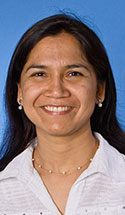 The GPH conferences are planned and organized by young public health professionals with unconditional support from their eminent seniors. The contact persons are Research Coordinator Raman Preet (photo) at Epidemiology and Global Health/Umeå International School of Public Health, Umeå University, and Prabhath Patabendi at ICRD.
The GPH conferences are planned and organized by young public health professionals with unconditional support from their eminent seniors. The contact persons are Research Coordinator Raman Preet (photo) at Epidemiology and Global Health/Umeå International School of Public Health, Umeå University, and Prabhath Patabendi at ICRD. The second International Conference on Global Public Health (GPH 2014) will be held in Colombo on 3–4 July 2014. It focuses on development agenda at a cross-roads, with education, equality and economy the three pillars as themes that push the global health agenda. Considering the fact that all health professions have stakes in the outcomes of any such deliberation the organisers expect more cross and multi-disciplinary representation than their first conference that was successfully held in December 2012 with delegates from 35 countries, both north and south of globe represented. More information.
The second International Conference on Global Public Health (GPH 2014) will be held in Colombo on 3–4 July 2014. It focuses on development agenda at a cross-roads, with education, equality and economy the three pillars as themes that push the global health agenda. Considering the fact that all health professions have stakes in the outcomes of any such deliberation the organisers expect more cross and multi-disciplinary representation than their first conference that was successfully held in December 2012 with delegates from 35 countries, both north and south of globe represented. More information.